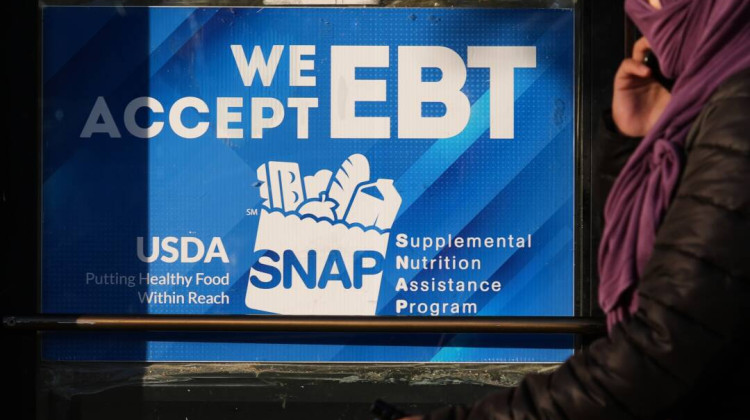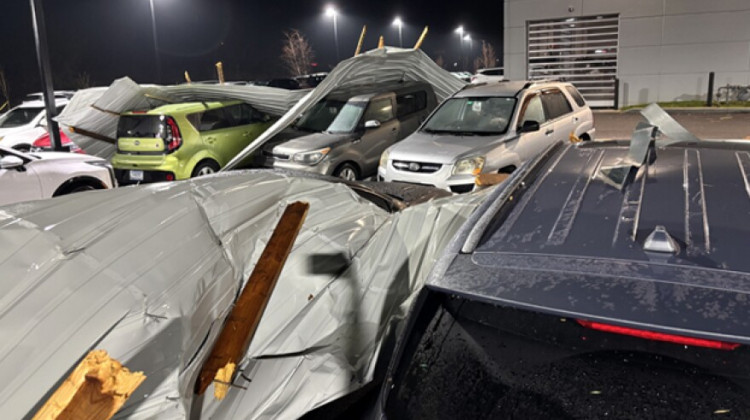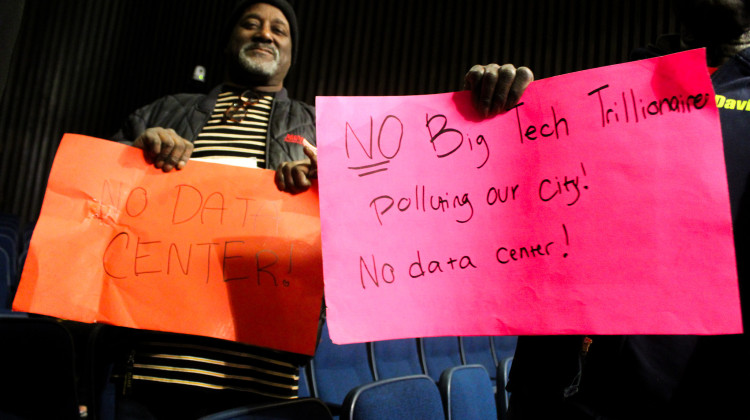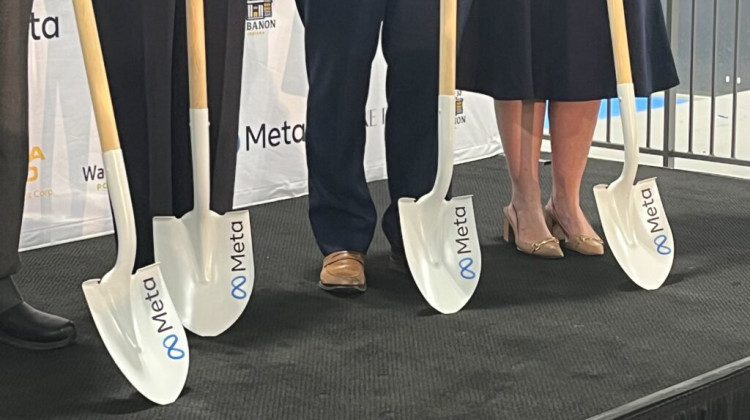
A SNAP EBT information sign is displayed at a bakery as a woman walks past in Chicago, Nov. 2.
Nam Y. Huh / APThe U.S. Supreme Court temporarily granted the Trump administration's request to block full SNAP food benefits during the government shutdown, even as residents in some states had already begun receiving them.
The Trump administration is appealing a court order to fully restart the country's largest anti-hunger program. The high court decision late Friday gives a lower court time to consider a more lasting pause.
The move may add to confusion, though, since the government said it was sending states money on Friday to fully fund SNAP at the same time it appealed the order to pay for them.
Shortly after U.S. District Judge John McConnell Jr. issued that decision Thursday afternoon, states started to announce they'd be issuing full SNAP benefits. Some people woke up Friday with the money already on the debit-like EBT cards they use to buy groceries. The number of states kept growing, and included California, Oregon, Wisconsin, Pennsylvania and Connecticut among others.
MORE Here's where to get free food in Indianapolis
The Supreme Court's decision means states must, for now, revert back to the partial payments the Trump administration had earlier instructed them to distribute. While the U.S. Court of Appeals for the First Circuit rejected the administration's request for an administrative stay, the appeals court said it would consider the request for the stay and intends to issue a decision as quickly as possible.
Funding for the nation's largest anti-hunger program ran out a week ago, as the federal shutdown entered its second month. States, cities and food banks have been ramping up donations desperately trying to fill the gap. Nearly 42 million people rely on SNAP, most of them extremely low-income families with children, along with seniors, or people with disabilities.
In his order, Judge McConnell admonished the government for deciding earlier in the week to make only partial SNAP payments. He said officials failed to consider the "needless suffering" that would cause millions of people who rely on that aid. He also suggested they had delayed the partial payments for "political reasons."
The administration had said it did not have enough emergency funds to cover full payments because of the ongoing federal shutdown. In appealing the new order, officials argue that it's up to Congress to provide more SNAP funding. And they say shifting money from elsewhere, as the judge directed, would only harm other child nutrition programs.
"There is no lawful basis for an order that directs USDA to somehow find $4 billion in the metaphorical couch cushions," the government wrote in a court filing.
Earlier this week, the Agriculture Department tapped about $4 billion in a contingency fund for SNAP, which only covers about half the program's monthly budget. It had directed states to recalculate partial payments, a complicated process some complained could take weeks.
Before the emergency pause, one anti-hunger advocacy group welcomed the end of a "long, chaotic, and unnecessary delay" to this month's benefits.
"The Trump administration all along had both the power and the authority to ensure that SNAP benefits continued uninterrupted but chose not to act until a court order forced it to do so," said Crystal FitzSimons, president of the Food Research & Action Center.
This is a developing story and may be updated.
 DONATE
DONATE






 Support WFYI. We can't do it without you.
Support WFYI. We can't do it without you.